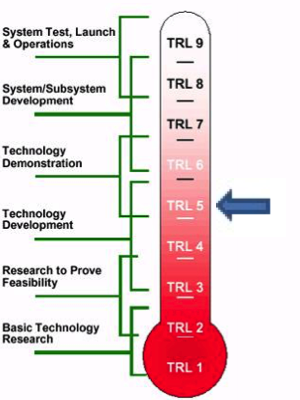C28
ENEA Technology
PRODUCTION OF BIOELECTRICITY FROM WASTEWATER AND WASTE BIOMASSES WITH MICROBIAL FUEL CELLS

Technology Readiness Level (TRL)
4÷5
Innovations and Benefits
The production of biological electricity from wastewater and organic waste materials normally requires the production of a fuel (biogas) which is then used in a cogenerator.
With the developed process the electric energy is directly collected through two electrodes placed in contact with the microbial flora, fed by the nutrients present in the wastewater, without having to go through a combustion process.
Every single cell is able to develop a voltage equivalent to that of a normal fuel cell with the same conversion efficiency.
Use
Microbial Fuel Cells are biological fuel cells, where the fuel is supplied directly by the bacteria used to degrade the organic substanceS. With the energy produced it is possible to operate different types of electrical equipment, including lighting systems and household appliances.
The MFC can be used not only to produce electricity but also to selectively remove specific pollutants in the feed wastewater.
Applications and ongoing Activities
The Microbial Fuel Cell has been tested in the laboratory using different substrates for energy production. Energy production was equal to expectations. Currently studies are underway to improve performance and redesign the process in order to reduce losses due to electrical resistances, even without the use of proton exchange membranes.
Microbial ful cell membraneless with management and control device (Patent BO2006A879)
“If you are interested in this technology/service, please send a message to eneaperlinnovazione@enea.it, by specifying the title of the technology/service of your interest, the reason for your request and your contacts or the contacts of a person from your organization/company.
